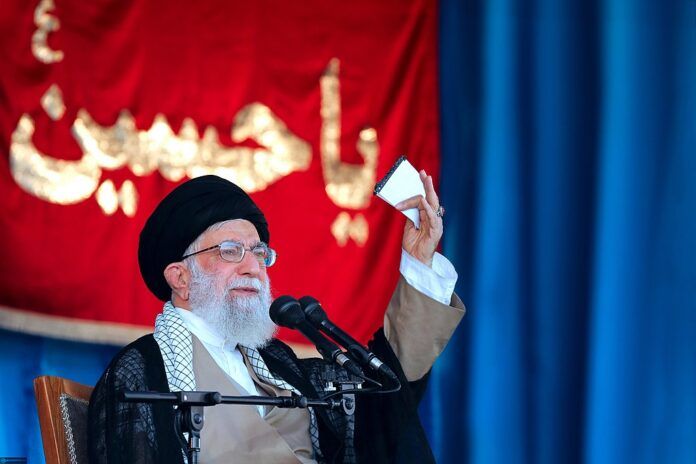Tensions escalate as Iran’s supreme leader promises a strong response to the killing of revolutionary guards in Syria
Ayatollah Ali Khamenei, supreme leader of Iran has issued a stern promise of revenge in response to an Israeli air raid in Syria, which resulted in the deaths of senior Iranian military officers, including two generals. The attack targeted the Iranian embassy compound in Damascus, exacerbating fears that the ongoing conflict between Israel and Gaza could trigger a broader regional confrontation.
Khamenei’s declaration came amid rising tensions, with the supreme leader promising that Israel would face retribution for its actions. “The evil Zionist regime will be punished at the hands of our brave men. We will make them regret this crime and the other ones,” Khamenei stated, as his message was disseminated through official channels. This development follows reports that the casualty toll from the consulate building attack has climbed to 13, comprising both Iranian and Syrian nationals.
The Iranian President, Ebrahim Raisi, echoed Khamenei’s sentiments, labelling the incident a “cowardly crime” and assuring that it would not go unanswered. He criticized Israel for resorting to “blind assassinations” in a bid to demoralize the resistance front against it. Meanwhile, Hezbollah, an Iran-supported armed group, also issued warnings of punishment and revenge against Israel for the assault on Iranian diplomatic premises.
The attack on the consular building in Damascus’s upscale Mezzeh district has not been officially claimed by Israel. Nonetheless, Israeli Defence Minister Yoav Gallant, without directly referencing Iran, emphasized Israel’s readiness to impose a “heavy price” on any actions against it, highlighting the nation’s commitment to thwarting its enemies across the Middle East.
The incident has further complicated the volatile situation in the region, which has been on edge since the Gaza war began in October. There are concerns that Iran’s potential response to the embassy attack could escalate into a wider conflict, drawing in the United States and affecting Iran’s relations with its regional proxies.
As Tehran weighs its options, the international community watches closely, with the UN Security Council scheduled to discuss the issue in a session requested by Russia, a key ally of both Syria and Iran. China has expressed condemnation of the attack, underscoring the inviolability of diplomatic security, while the EU has called for restraint from all parties involved. However, the rhetoric from Iranian officials suggests that a forceful Iranian response may be imminent, adding another layer of uncertainty to the already tense Middle Eastern geopolitical landscape.
